The World Gold Council, Women’s Empowerment and Gender Equality
The WGC and the WEPs
The World Gold Council is proud to announce its support of the Women’s Empowerment Principles (WEPs), having recently become a signatory of this important initiative to promote gender equality and empower women in the workplace, community, marketplace, and wider society.
The WEPs are a set of guiding principles developed through a collaboration between the UN Global Compact and UN Women. The seven principles, designed to provide a simple framework to enable businesses to contribute to a more inclusive and equitable environment for everyone, are as follows:
- Establish high-level corporate leadership for gender equality.
- Treat all women and men fairly at work – respect and support human rights and non-discrimination.
- Ensure the health, safety, and well-being of all women and men workers.
- Promote education, training, and professional development for women.
- Implement enterprise development, supply chain, and marketing practices that empower women.
- Promote equality through community initiatives and advocacy.
- Measure and publicly report on progress to achieve gender equality.
Neal Froneman, World Gold Council Chairman and CEO of Sibanye Stillwater:
“The mining and metals industry has transformed and modernized significantly in recent years and is creating a lot of social value. To continue on this journey – and address some of the historical perceptions around social impacts of mining and metals – it’s important that we are committed to creating opportunities for today’s workforce. That means supporting opportunities for everybody who is talented and wants to make a contribution to improve the state of the world. The Women’s Empowerment Principles are an important initiative that will further help the industry build on existing efforts to demonstrate that it is open to all and can provide opportunity and impact to all.”
David Tait, CEO, World Gold Council:
“I am very pleased to be signing the United Nations Women’s Empowerment Principles on behalf of the World Gold Council as a further signal of our commitment to encourage and support diversity and inclusion at our organisation and across the gold industry. This also extends and reaffirms our support of the UN Global Compact, and our recognition of the contributions that responsible business leaders can make to the advancement of the UN’s Sustainable Development Goals.”
The WGC’s workforce
WGC employees and gender diversity
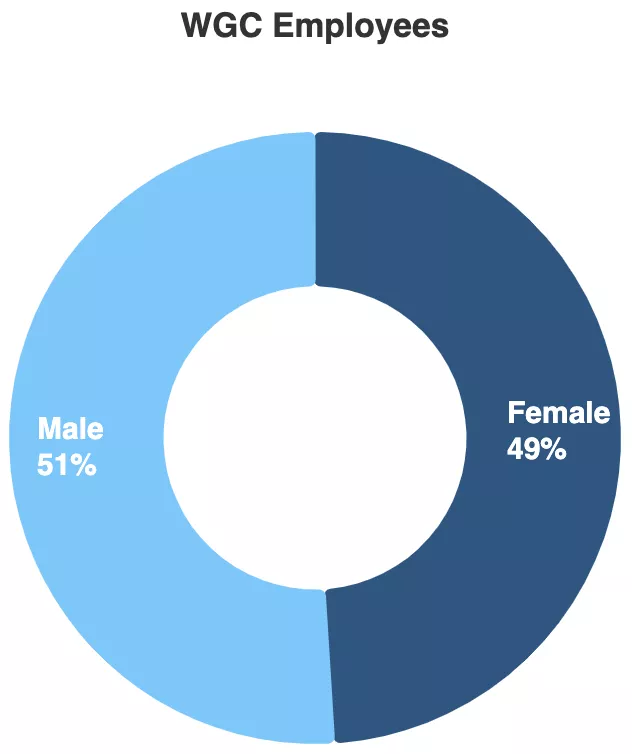
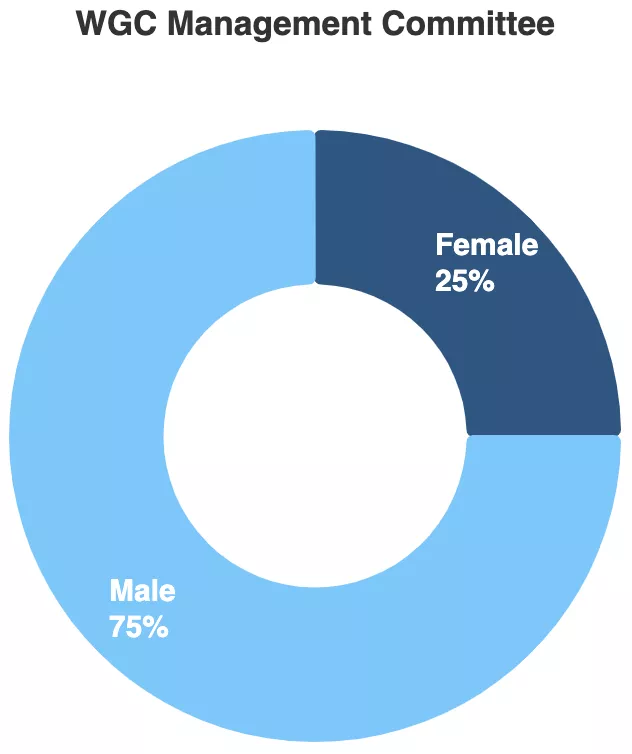
The WGC is proud of the diversity of its global workforce. As an organisation, we are committed to continuing to ensure that we give opportunities to all to develop and progress, as well as ensure that we have recruitment processes that support bringing the best talent into the organisation. The guidance and tools provided by the WEP programme will further assist us in our continuing commitment to build and develop the WGC’s global workforce in ways that create and support opportunities for women.
WGC Members and Women’s Empowerment
The WGC, representing a membership of leading gold mining companies, has sought to highlight the progress of those members in creating environments of opportunity and support for women, whilst striving to encourage further and wider industry progress.
The WGC’s Responsible Gold Mining Principles, mandatory for WGC member companies but available and recommended for the wider gold mining industry, state (in Principle 6.6) that adherent companies commit to the following:
- To identifying and resolving barriers to the advancement and fair treatment of women in our workplaces.
- To contributing to the socio-economic empowerment of women in the communities associated with their operations, through employment, supply chain, training and community investment programmes.
Furthermore, Principle 7.2 (on ‘Understanding Communities’) commits implementing companies to ‘be alert to the dangers of causing differentially negative impacts on women, children, indigenous peoples and other potentially vulnerable or marginalised groups’ and insists that they should ensure that the voices of these stakeholders are heard.
Seeking to use the RGMPs to encourage industry good practice on these issues, the WGC published its briefing note, Women in Mining and the Responsible Gold Mining Principles; A guide to best practice.
WGC Member companies and gender diversity within the workforce
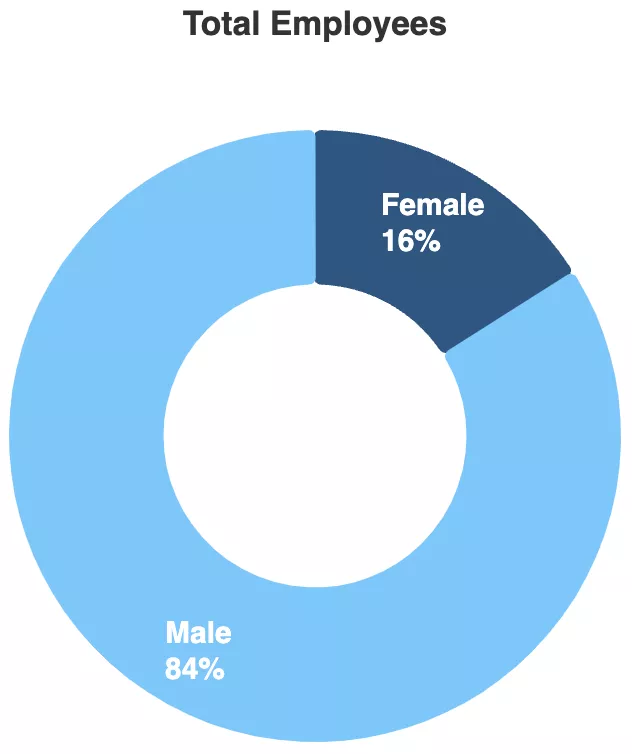
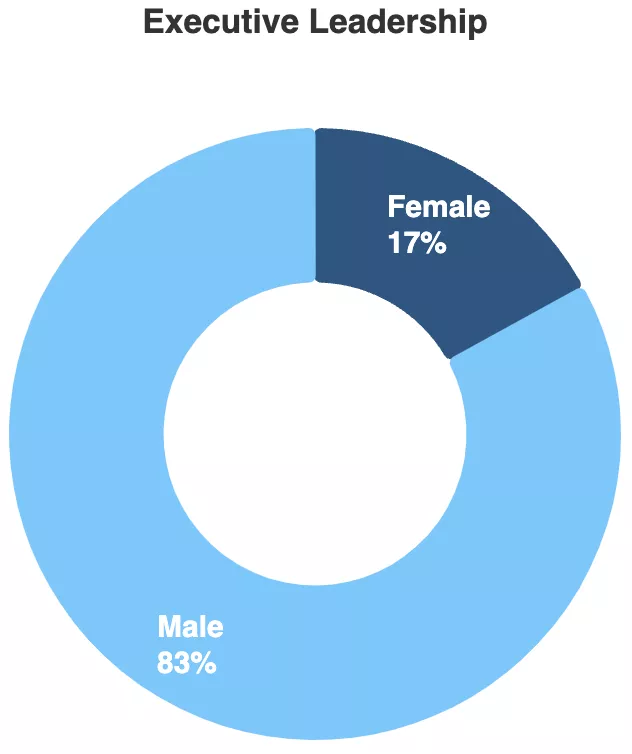
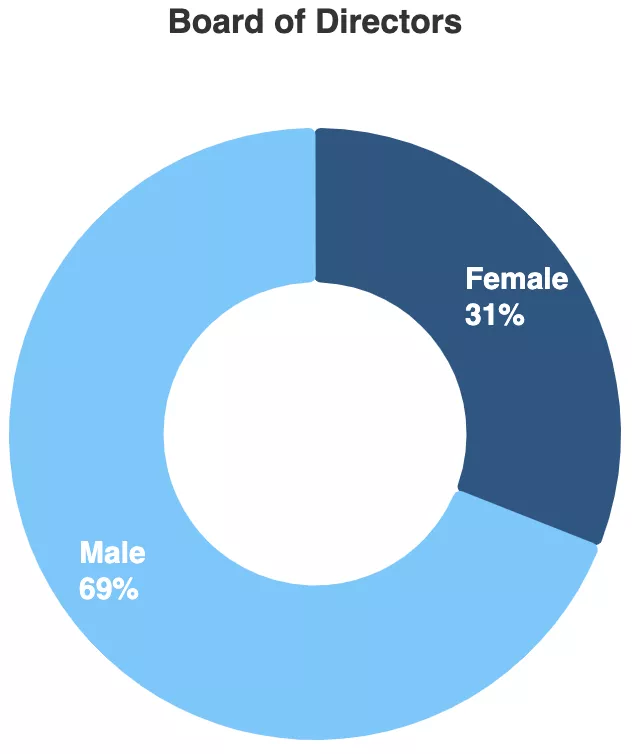
The above numbers demonstrate a commitment from our members to understand and monitor gender diversity within their workforces. Mining has historically seen an under-representation of women – and this continues to be the case today. However, there are many initiatives underway to support greater access to the mining industry for historically under-represented groups, with companies recognising the merits of employing a diverse workforce and creating greater opportunities for women.
The WGC collects and reports on this data on a regular basis. As noted above, it also seeks to highlight and promote further good practice and positive impacts. See, for example, Gold and gold mining’s contribution to SDG 5
SDG 5 focuses on gender, and on eliminating discrimination, violence and the exploitation of women and girls, as well as ensuring women are afforded the same economic, leadership and decision-making opportunities as men and have access to reproductive health care. Mining can have a positive impact on these objectives and, in some cases, be transformative in the changes it sparks and supports.
Stakeholder engagement and industry support
Gold Industry Declaration of Responsibility and Sustainability Principles
The WGC was one of the founding organisations which brought together different organisations from across the global gold supply chain to agree on a set of industry-wide sustainability objectives, including Principle 4:
Promoting diversity, equity, and inclusion in our organisations and across the industry, supporting the representation and participation of people of different genders, ages, races and ethnicities, abilities and disabilities, religions, cultures and sexual orientations.
The WGC is also supportive of other efforts across the gold value chain that seek to advance progress on gender equality and women’s empowerment. These include its support for and collaboration with the following organisations:
Recognising the importance of championing diversity and advocating for women in the mining industry, the WGC has been an enthusiastic long-standing Industry Partner to WIMUK. In addition, the WGC has also been a WIMUK Intern & Scholarship Partner and is proud of the young women whose careers have blossomed from the educational foundations, paid internships and employment pathways facilitated by this programme.
Similarly, the WGC has been very pleased to support IWiM in its objectives to develop a global network of aligned organisations seeking to drive change towards gender equality in mining. Specifically, we have been very happy to contribute to the IWiM’s International Women in Resources Mentoring Programme.
A CEO-led coalition built on 3 key pillars of action, including working collaboratively to ensure inclusive and responsible value chains, with support for the WEPs being a key commitment of member organisations. The WGC has been an enthusiastic supporter of the WJI2030 for several years and seeks to actively contribute to its progress.
The ICMM recent published its position statement on Diversity, Equity and Inclusion, which referenced updates to its Mining Principles that are supportive of women’s empowerment, including:
- Adding actions to eliminate all forms of harassment and unfair discrimination from workplaces.
- Defining proactive steps to achieve gender equality and the participation of all peoples.
- Cementing the importance of psychological safety alongside physical health and safety.
